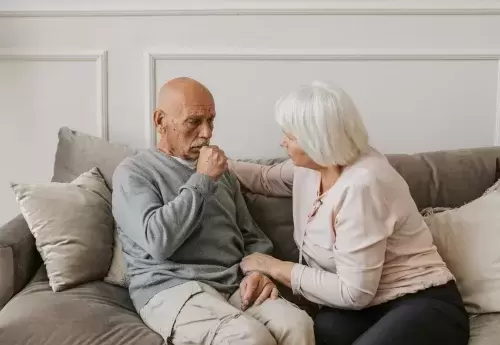
This photo was taken by Chona Kasinger for Disabled and Here.
By Minaa B. with Respect Your Struggle
Trigger Warning: Content discussed addresses suicide and suicidal thoughts.
For more than twenty years of my life I struggled with major depression and suicide ideation. Thought after thought, I was consumed with the idea of death and sadness and how to eliminate myself from the rest of the world. I grew tired of carrying my burdens, and when my back could no longer stand up straight from the weight of my pain that I carried in silence - I attempted suicide.
The cuts on my wrists were indicators that this brown girl was not okay. I hid myself. Learning how to be bold and brave about my struggles was a behavior that I was never taught. Instead, I was constantly reminded through television, music, the church and conversations, that weak-minded people don’t get far in life. The stigmas of society told me that black women didn’t complain - they pushed through. Black women didn’t get tired - they worked hard. And black people don’t struggle with depression - we pray. Then carry on.
What a detrimental and debilitating pressure to put on folks who are subjected not only to environmental trauma such as racism, discrimination, oppression and marginalization - but also to the everyday effects of simply being human.
Since when is it not okay for black people to find healing? Since when is having a mental illness a reason why I wouldn’t make it to heaven? Since when is struggling a form of weakness, when no person in this world is void of mishap and misfortunes? Since when is being imperfect a deficit, when perfection doesn’t even exist?
This tired rhetoric that people within the African-American community are weak, fragile or touched by the devil if they have a mental illness is man-made propaganda that has been used to keep people of color stuck in their debilitating circumstances, with fewer chances on thriving alongside the rest of the world. The supposition that our ancestors made through slavery - therefore we can make it through anything - is crass and insensitive, not only to the needs of people living in modern times, but also to our ancestors who fought hard for people of color to have access to fair treatment and equality - including health care.
We must remember folks like Dr. Solomon Carter Fuller who was a pioneering African-American psychiatrist who made significant contributions to the study of Alzheimer's disease. Or people like Dr. Paul Cornely whose professional work focused on the development of public health initiatives aimed at reducing healthcare disparities among the chronically underserved.
Mamie Phipps Clark was the first African-American woman to earn a doctorate degree in psychology from Columbia University. Her groundbreaking research on the impact of race on child development helped end segregation, and was influential in desegregation efforts including the Brown vs. Board of Education in 1954.
These people, plus many more, have paved the way for people of color to receive adequate physical and emotional health care. But the lessons they also taught us is that hurt does exists, and people should never be ashamed to talk about it or address it. Even when you think you are isolated in your problems and worries - you are never alone. Your life matters and you deserve to give yourself your best chance - despite what others say.
If you are worried that you or a loved one may be struggling with a mental health condition, there is hope. To start, consider taking a free mental health screening to assess your symptoms and find out how to seek help.
Understand that though hurt can make you feel as if you are alone - you never are. MHA began the campaign #mentalillnessfeelslike as a way to show individuals struggling through pain and confusing symptoms that they are not alone. . We encourage you to participate too - share your story – tell us what #mentalillnessfeelslike to you. Because there is power in sharing. And there is power in knowing that you are not alone.
Minaa B. who was born Jessmina Archbold, is a NYC based licensed psychotherapist and founder of the digital mental health magazine Respect Your Struggle. She works in private practice providing wellness services to clients with different complex mental health issues and she works as a mental health advocate and freelance writer for various publications. Minaa is also the author of the book Rivers Are Coming, a collection of essays and poems on healing from depression and trauma. More can be learned about her on www.minaab.com .




